India is home to millions of temples, each with its own rich history and cultural significance dating back thousands of years. The history of Indian temples is as diverse as its culture. Historians suggest one of the oldest surviving complete stone temples is Sanchi Temple 17, dating back to the 5th century CE. Do you know that high up in the Himalayas, there's a temple perched at an altitude of over 12,073 feet, making it the highest Shiva temple in the world? It is believed to have been built by the Pandava brothers from the Mahabharata epic. Its idol is moved to a lower village for six months every year due to heavy snowfall. In this article, we'll take a look at the top 10 high-altitude temples in India, exploring their spiritual significance, breathtaking locations, and what makes each one unique.
List Of the Highest Temples to Climb In India
The highest temple in India is the Hemkund Sahib, a sikh gurudwara, located in Uttarakhand. It sits at a breathtaking height of about 4,632 metres (15,197 feet) above sea level. However, if we are talking only about traditionally built Hindu temples (buildings, not natural caves), the record goes to the Tungnath Temple. This beautiful Shiva temple is also in Uttarakhand, but at a slightly lower elevation of about 3,680 meters (12,073 feet).
| Rank | Temple Name | Location | Altitude (meters) | Altitude (feet) | Deity |
| 1 | Hemkund Sahib | Chamoli, Uttarakhand | 4,329 | 14,203 | Sikh Gurudwara |
| 2 | Amarnath Cave Temple | Jammu and Kashmir | 3,888 | 12,756 | Lord Shiva |
| 3 | Muktinath | Muktinath Valley, Nepal/India border | 3,800 | 12,467 | Lord Vishnu, Shiva |
| 4 | Tungnath | Rudraprayag, Uttarakhand | 3,680 | 12,073 | Lord Shiva |
| 5 | Kedarnath | Uttarakhand | 3,583 | 11,755 | Lord Shiva |
| 6 | Madhyamaheshwar | Uttarakhand | 3,497 | 11,473 | Lord Shiva |
| 7 | Yamunotri | Uttarakhand | 3,293 | 10,804 | Goddess Yamuna |
| 8 | Rudranath | Uttarakhand | 2,286 - 3,600 | 7,500 - 11,811 | Lord Shiva |
| 9 | Kalpeshwar | Uttarakhand | 2,200 | 7,218 | Lord Shiva |
| 10 | Vaishno Devi | Jammu and Kashmir | 1,585 | 5,200 | Goddess Vaishno Devi |
1. Hemkund Sahib

This Sikh Gurudwara is located in Chamoli, Uttarakhand. Its high altitude is approximately 4,329 metres (14,203 feet). The structure is situated beside the glacial Hemkund Lake, a naturally occurring body of water. The shrine is generally constructed of stone and concrete, designed to withstand extreme cold and heavy snowfall. Due to the severe winter climate, the site remains open for pilgrims only during a few summer months, a constraint imposed by its high-mountain environment.
2. Amarnath Cave Temple
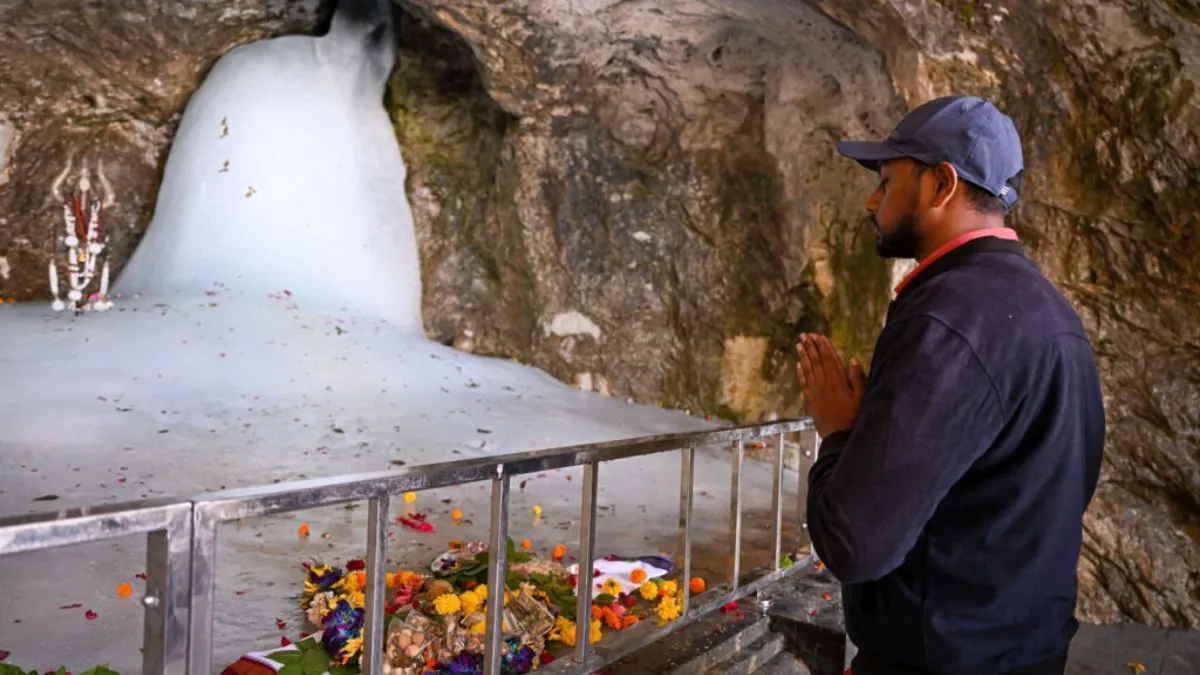
This natural cave is situated in Jammu and Kashmir at an approximate altitude of 3,888 meters (12,756 feet). The structure itself is a pre-existing cavern in a mountain gorge. The most notable physical feature is the formation of a stalagmite inside the cave. This ice structure forms when water from the cave roof freezes drop by drop, a clear process of crystallisation determined by ambient air temperature and water seepage. The size of this ice formation changes throughout the year with the seasons.
3. Muktinath

Located near the Nepal/India border in the Muktinath Valley, its altitude is approximately 3,710 metres (12,172 feet). The main shrine exhibits a pagoda-style architecture, a common structural adaptation in the Himalayan region. A remarkable feature is the presence of 108 brass water spouts arranged in a semicircle. Furthermore, the complex includes the Jwala Mai Temple, where a small, perpetual flame is fuelled by a natural gas seep, demonstrating a continuous hydrocarbon leak from the Earth's crust.
4. Tungnath
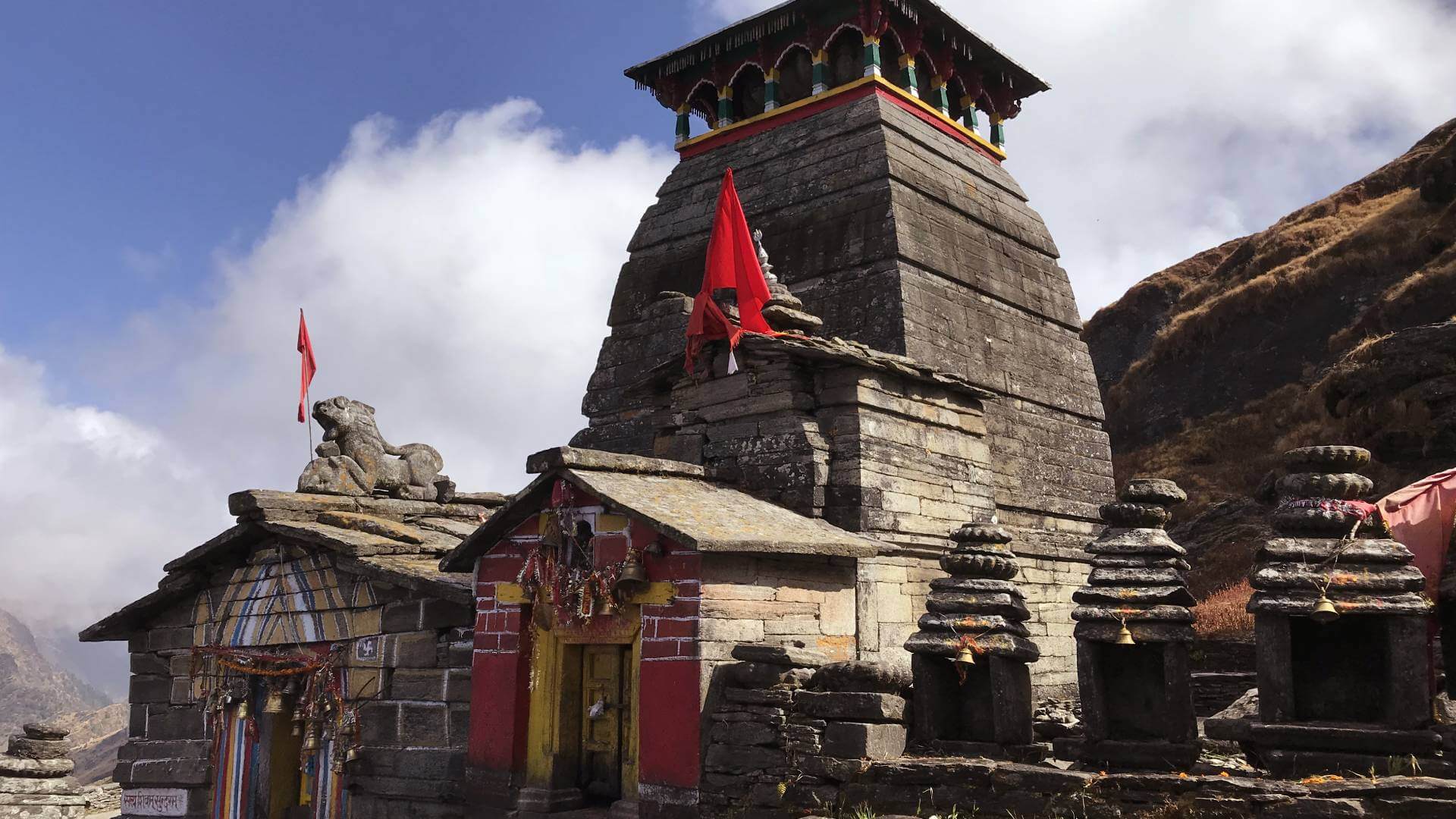
Tungnath, located in Rudraprayag, Uttarakhand, is the highest Shiva temple in the world, at approximately 3,680 metres (12,073 feet). The temple is built entirely of durable grey stone, a necessity for structural longevity in the harsh climate. Geographically, it sits on a ridge separating the river valleys of the Mandakini and Alaknanda. The temple's construction is believed to be over 1,000 years old. Its high elevation necessitates its closure for six months each year due to impassable snow accumulation.
5. Kedarnath
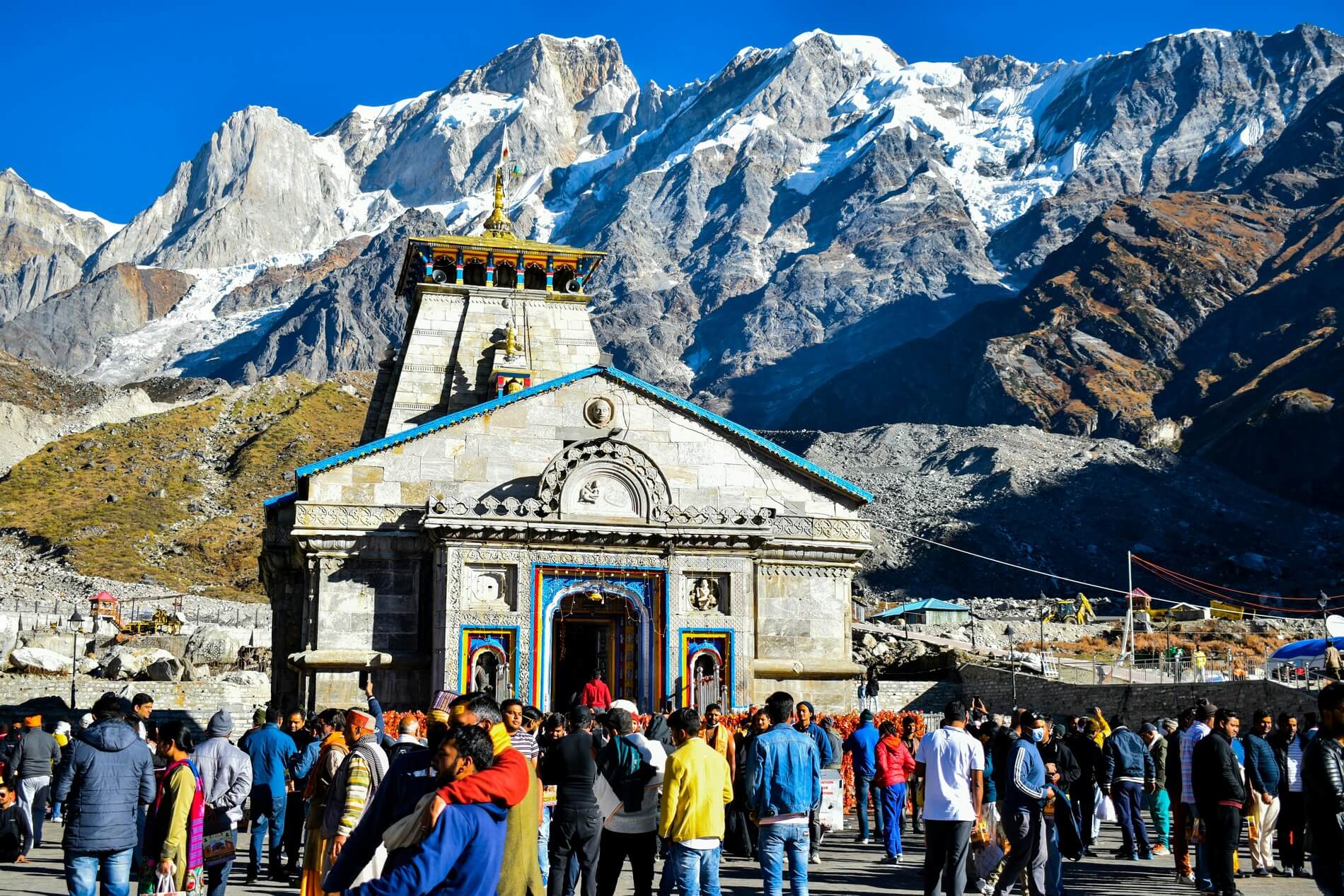
Situated in Uttarakhand, this temple stands at an elevation of about 3,583 meters (11,755 feet) near the Chorabari Glacier. It is constructed from massive, interlocked grey stone slabs, a feat of historical engineering for transporting and placing such heavy material. The temple has a Garbha Griha (sanctum) and a Mandap (assembly hall). Its location on the banks of the Mandakini River, subject to flash floods, demonstrates its structural resilience, notably surviving a severe flood in 2013.
6. Madhyamaheshwar
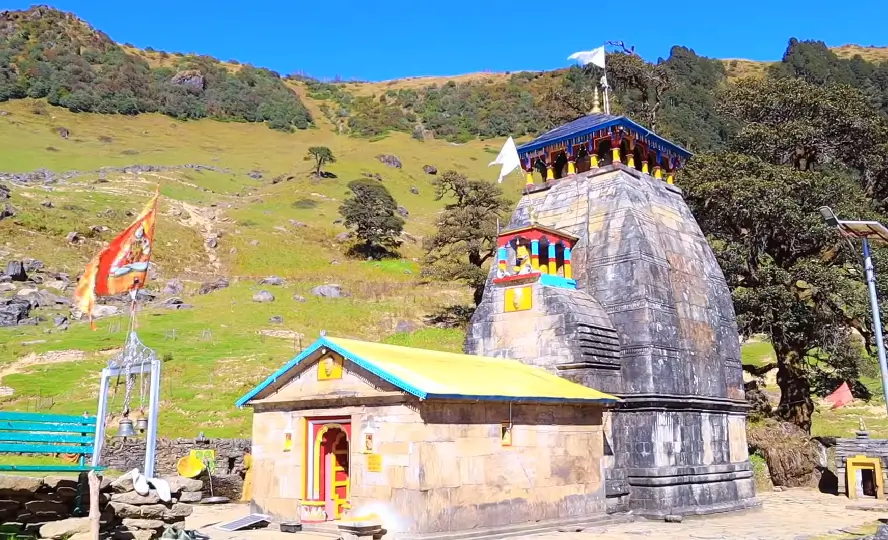
This temple is located in Uttarakhand at an approximate elevation of 3,490 meters (11,450 feet), making it the fourth of the Panch Kedar temples. It is constructed from stone, in the typical architectural style of the Garhwal Himalayas. The temple is surrounded by alpine meadows and thick forests, which are characteristic of this altitude zone. Like many high-altitude shrines, it experiences heavy winter snow and remains closed for six months of the year, usually from November to April.
7. Yamunotri
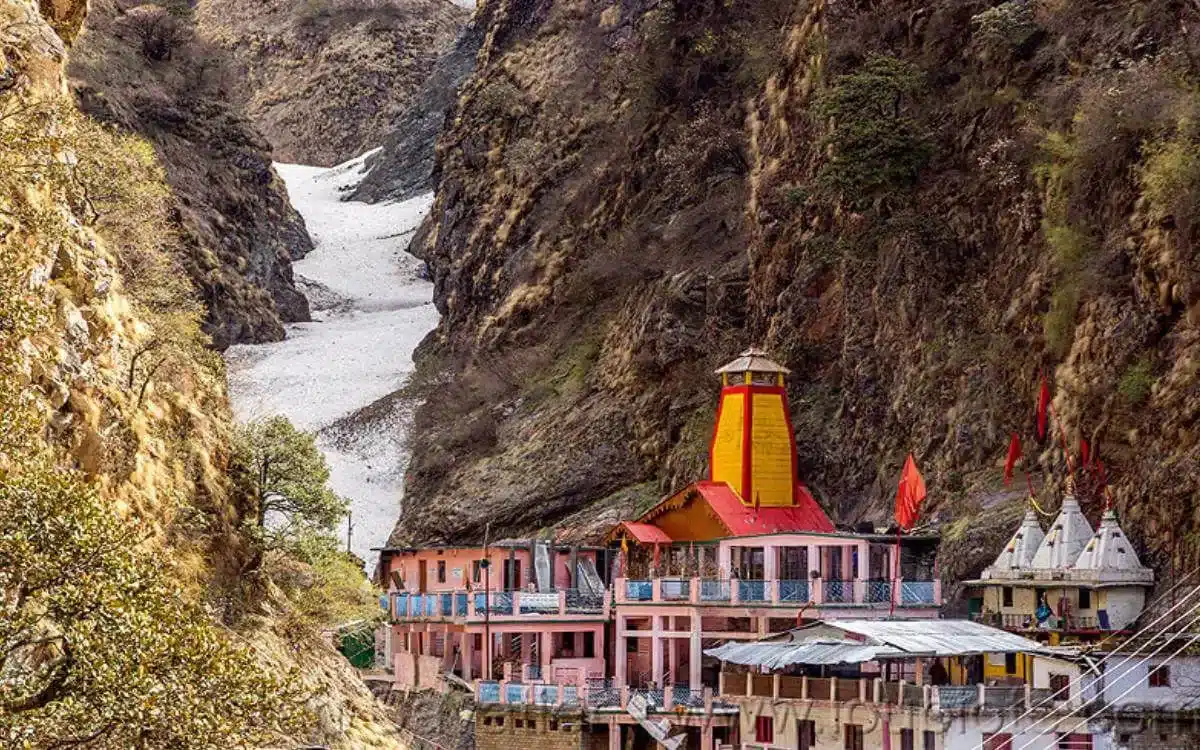
Located in Uttarakhand, the temple is at an altitude of approximately 3,291 metres (10,797 feet), at the base of the Bandar Poonch Peak. The existing structure was rebuilt multiple times due to repeated damage from snowfall and floods, indicating constant structural challenges from the environment. The site is known for its geothermal activity, evidenced by natural hot water springs like the Surya Kund, where water temperatures are high enough to cook food. The water is rich in minerals from the earth's crust.
8. Rudranath

Situated in Uttarakhand, this remote temple is at a demanding trek distance and is located at an altitude of approximately 3,559 metres (11,677 feet). It is one of the most geographically isolated of the Panch Kedar temples. The structure is a small, basic stone shrine, reflecting a minimal construction approach given the rugged mountainous terrain and logistics. It is surrounded by dense rhododendron and alpine vegetation, typical flora adapted to the severe, high-altitude ecosystem.
9. Kalpeshwar
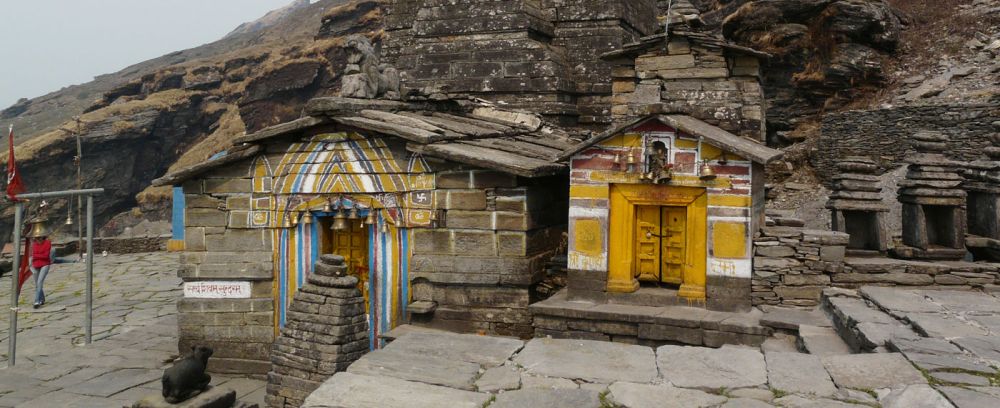
This temple is located in the Urgam Valley, Uttarakhand, at an elevation of about 2,200 metres (7,218 feet). It is unique among the Panch Kedar sites for being accessible year-round. The main shrine is built within a natural cave passage. The surrounding area is distinguished by terraced fields and is fed by the Kalpganga River. Near the temple is the ancient Kalpvriksha tree, a specimen of old-growth flora adapted to the mid-Himalayan climate.
10. Vaishno Devi
The temple is situated in the Trikuta Mountains of Jammu and Kashmir at an altitude of approximately 1,584 metres (5,200 feet). The main shrine is located inside a natural cave, which pilgrims must traverse to reach the sanctum. The journey covers about 12 kilometres from the base camp. The site is characterised by an organised pathway and tunnel system developed over time to manage the large volume of pilgrims, a modern engineering effort in the hilly terrain.
Which Temple Is At The Highest Altitude In India?
The highest-altitude religious shrine in India is generally considered to be Hemkund Sahib in Uttarakhand, a Sikh Gurudwara located at an elevation of approximately 4,632 meters (15,197 feet). Among the structural temples (not natural caves), Tungnath Temple is the highest, situated at around 3,680 metres (12,073 feet) in Uttarakhand.
Is Amarnath Higher Than Tungnath?
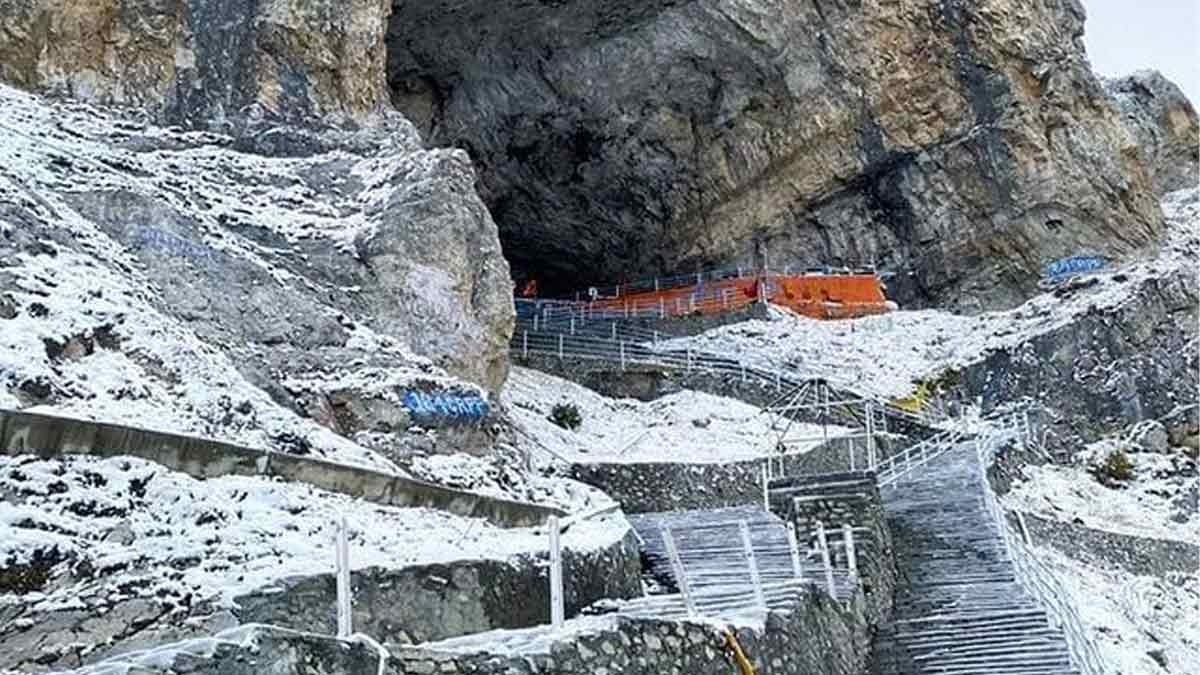
Yes, the Amarnath Cave Temple is at a higher altitude than the Tungnath Temple. Amarnath is a natural cave shrine situated at an elevation of about 3,888 meters (12,756 feet) in Jammu and Kashmir. In comparison, Tungnath Temple, a structural temple, is located at approximately 3,680 metres (12,073 feet) in Uttarakhand.
Which Is The Tallest Temple In India?
The tallest temple structure in India is the Rajarajeshwara (Murudeshwar) Temple in Karnataka, which boasts the world's second-tallest gopuram (temple tower). The main gopuram stands at an impressive height of approximately 76.4 metres (249 feet). The original temple itself is ancient, but this massive tower is a modern construction.
Which City Has The Maximum Temples In India?
The city most famously known as the "City of a Thousand Temples" is Kanchipuram in Tamil Nadu. It has been an ancient religious centre for Hinduism, Jainism, and Buddhism. Another contender, often called the "Temple City of India", is Bhubaneswar in Odisha, which historically had over a thousand temples, primarily dedicated to Lord Shiva.
Which State Has the Most Temples In India?
Tamil Nadu is generally credited with having the largest number of functioning temples in India, estimated to be over 40,000. The state is famed for its monumental Dravidian architecture, particularly its towering gopurams. Karnataka also has a very high number of sites, especially those protected under the Archaeological Survey of India.
Which is the Highest Altitude Temple In India?
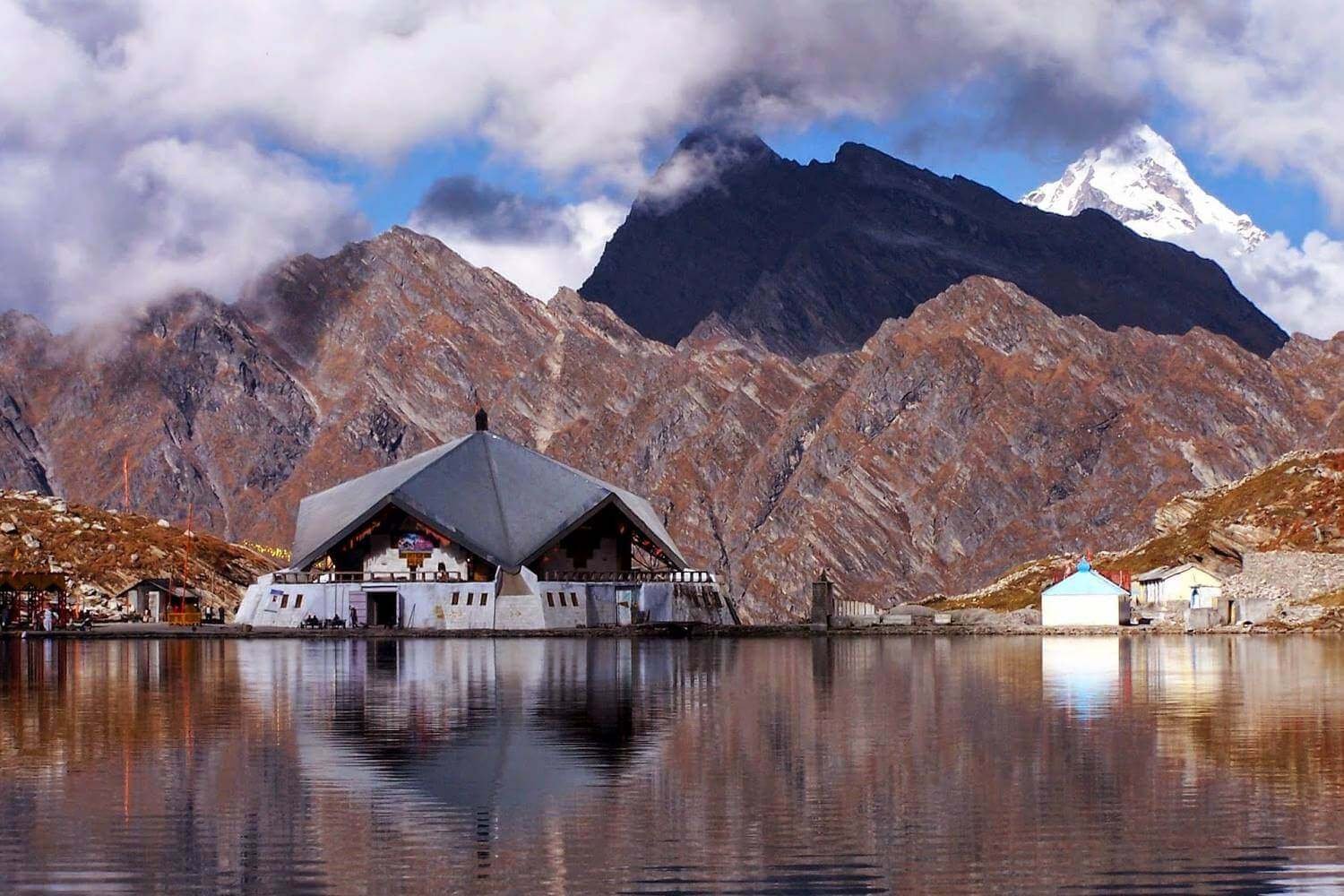
The highest-altitude religious site is the Hemkund Sahib Gurudwara in Uttarakhand, at approximately 4,632 metres (15,197 feet). Among the structural temples dedicated to a specific Hindu deity, Tungnath Temple is the highest at around 3,680 metres (12,073 feet).
Which is the Highest Shiva Temple In India?

The Tungnath Temple in the Rudraprayag district of Uttarakhand is the highest temple dedicated to Lord Shiva in India and is considered the highest Shiva temple in the world. It is located at an altitude of approximately 3,680 metres (12,073 feet) and is one of the five Panch Kedar pilgrimage sites.

Comments
All Comments (0)
Join the conversation